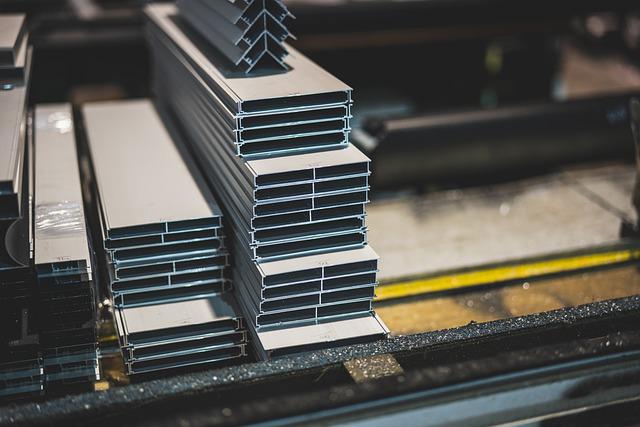Here’s How Aluminum Manufacturing Works
alloys
Aluminum is perhaps one of the most recognizable alloys. From a commercial perspective, this metal can be found everywhere: beer cans, foils, wraps, kitchen utensils and even airplane parts. But, where does it all come from? And how do we ultimately go from extracting a raw metal from the Earth’s crust to producing common household items? Well, aluminum manufacturing is a complex system that calls for the implementation of many different processes. From the extraction of Bauxite-sourced aluminum oxide to the careful smelting of its alumina form, the process of creating the world’s second most used metal is quite scientific.
As one of the most versatile metals available, aluminum has a wide range of industrial applications and a strong presence in everyday consumer goods. Combine this with the fact that aluminum is lightweight, anti-corrosive, and one of the most abundant naturally occurring elements, and it’s easy to see why the global demand for aluminum processing is so high.
If you’re curious to know how it all works, read on for a quick look at the aluminum manufacturing process and the metal’s various alloyed types.
How is Aluminum Refined?
Aluminum is a chemical element with a rich presence in the Earth’s crust. But the aluminum production process isn’t as simple as just digging up the compound and shipping it off to wherever it’s needed.
Instead, aluminum manufacturers start by mining bauxite, which is a soft clay mineral sourced from just a few meters below ground-level. Most bauxite is mined in Australia, though it can be found in quite a few other tropical and subtropical climates.
Bauxite is composed of about 45-60% aluminum oxide, which can be extracted to produce high-strength aluminum sheeting, tubing, bars, and more. Other elements found in bauxite, such as iron and sand, can also be extracted and put to use.
To extract aluminum from bauxite, most manufacturers start with something called the Bayer process. This method of aluminum processing requires that the bauxite be refined and ground, after which it is deposited into large pressure tanks with a sodium hydroxide solution (also known as caustic soda). With the addition of extreme steam heat, the sodium hydroxide dissolves the aluminum compounds and separates them from the other elements in the bauxite. What’s left is a sodium aluminate slurry that is then filtered and cooled before being purified into aluminum oxide, or alumina.
Once they have alumina, manufacturers begin the Hall–Héroult process, which involves smelting the alumina with a strong electric current. This results in a molten mixture that is electrolyzed to separate the aluminum atoms from the oxygen atoms. The end result: metallic aluminum ready to be alloyed, processed, and shipped to aluminum suppliers.
Types of Aluminum Alloys
How can the same chemical element create something both strong enough to support an aircraft and flexible enough to wrap a sandwich in for lunch? It all comes down to alloying.
There are multiple ways to alloy aluminum, and each way results in a different type of aluminum. These three types vary in strength, thickness, and utility, as well as chemical composition. They are:
- Commercially pure aluminum – Aluminum with 99% purity or higher. This type of aluminum is extremely resistant to corrosion and does a great job of conducting heat and electricity.
- Heat treatable aluminum – Aluminum created with an alloying process that involves extreme heat followed by rapid cooling to create an ultra-high strength metal. Because of its strength, this type of aluminum is widely used in aircraft and automobile production.
- Non-heat treatable aluminum – A cold alloying process that disrupts the atomic structure of the aluminum and increases its strength. Durability depends on the alloying element used, with some non-heat treatable aluminums being used for things like shipbuilding while others get used for canned goods and other consumer uses.
Whatever type of aluminum you’re looking for, our team at Alloys International can supply it for you. We specialize in providing metals with the exact specifications our clients need to get the job done. Shop aluminum alloys, and contact us today for more information or for help with any questions that you might have.




